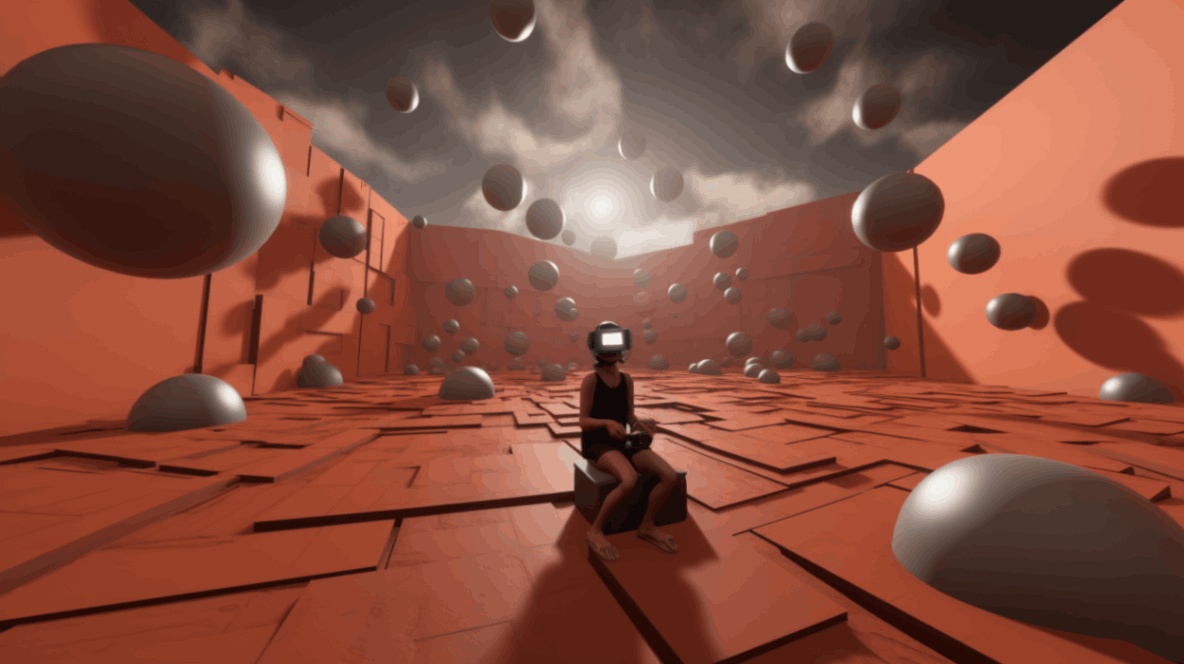
Meta’s Horizon Worlds: Navigating the Metaverse’s Challenges and Opportunities
In the rapidly evolving digital realm, Meta’s Horizon Worlds has emerged as a beacon of innovation. Launched with much anticipation in 2021, this brainchild of CEO Mark Zuckerberg signaled Meta’s resolute ambition to pioneer the Metaverse frontier.
A Rocky Start: Assessing the Challenges
Despite a formidable product suite in both XR hardware and software, the journey hasn’t been smooth for Zuckerberg’s team. Financial performance and user adoption have been underwhelming, casting shadows over the Metaverse’s bright promise.
However, setbacks are not defeats. With insights from its Q2 earnings, Meta is recalibrating, crafting a roadmap designed to widen its user base and redefine the Metaverse experience.
Horizon 2.0: A Revamped Vision
In the face of challenges, Meta is doubling down on its commitment. Plans are afoot to rejuvenate the Horizon platform throughout 2023 and 2024. At its core, Horizon remains an immersive collective space, where users can coalesce to consume and create digital content.
Highlighting its emphasis on User-Generated Content (UGC), Horizon resonates with the ethos of Web3, reminiscent of platforms like YouTube and TikTok. By empowering users to craft content, Meta envisions a diverse ecosystem catering to both consumer and enterprise needs.
Ouro Interactive: Breathing Life into Horizon
Meta’s ambitions find a new ally in Ouro Interactive. This production studio, established by Meta, aims to enrich the Horizon VR experience. With a focus on premier VR gaming experiences, Ouro’s recent offering, Super Rumble, showcases the potential of integrating gaming within the Metaverse framework.
Meta’s Vice President of Metaverse, Vishal Shah, sees Ouro Interactive as the catalyst to elevate Horizon to its envisioned grandeur. By combining in-house expertise with external collaborations, Shah believes Horizon’s potential is boundless.
Meta’s Mobile Pivot: Expanding Horizons
In a strategic move, Meta is venturing into the mobile domain with Horizon Worlds. By ensuring Horizon’s presence across diverse devices, from VR headsets to smartphones, Meta aims to democratize access and bolster adoption.
This move takes inspiration from platforms like Roblox, which have demonstrated the efficacy of multi-device immersive experiences. By casting a wider net, Meta aims to attract new users, ultimately funneling them towards its dedicated XR offerings.
Financial Headwinds: Reality Labs and Beyond
Meta’s Q2 financial reports painted a somber picture, with Reality Labs registering a loss of about $3.7 billion. While the numbers are daunting, they don’t capture the entirety of Meta’s journey. Emerging technologies, by their very nature, demand substantial investments before they yield dividends.
CEO Mark Zuckerberg remains undeterred. With exciting projects in the pipeline, from AI innovations to the anticipated Quest 3 launch, he believes the tide will turn.
Boosting User Adoption: The Road Ahead
User adoption remains a pressing concern. Current data suggests that Horizon Worlds’ user base hovers below the 200,000 mark. But Meta has been here before. Drawing from its experience with platforms like Threads, the company is optimistic. By promoting Horizon across smartphones, it hopes to replicate past successes, eventually driving users towards its immersive XR offerings.
Conclusion
The journey of Meta’s Horizon Worlds encapsulates the trials and tribulations of pioneering uncharted territories. While challenges abound, so do opportunities. With a clear vision, relentless determination, and strategic innovations, Meta is poised to shape the Metaverse’s future, leading us into a new era of digital interconnectedness.

